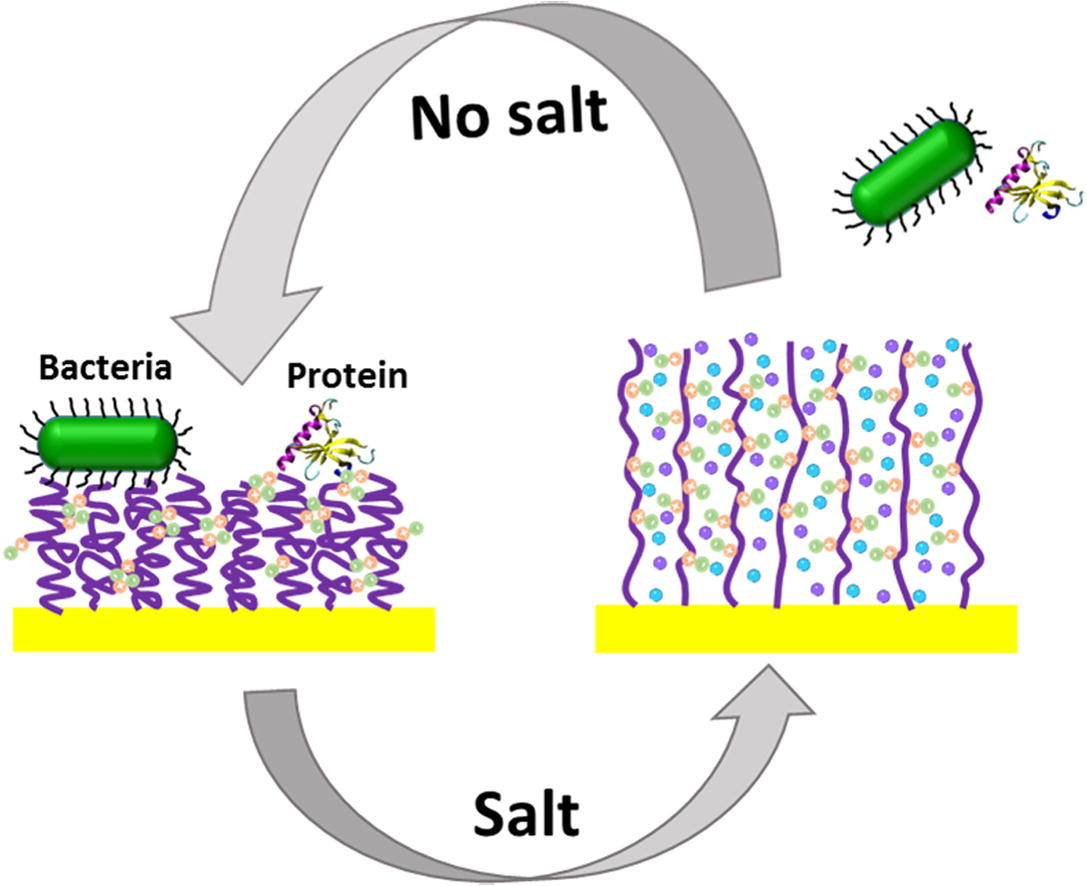ABSTRACT: Development of smart regenerative surface is a highly challenging but important task for many scientific and industrial applications. Specifically, very limited research efforts were made for surface regeneration between bio-adhesion and antifouling properties, because bioadhesion and antifouling are the two highly desirable but completely opposite properties of materials. Herein, we developed salt-responsive polymer brushes of poly(3-(1-(4-vinylbenzyl)-1H-imidazol-3-ium-3-yl) propane-1-sulfonate) (polyVBIPS), which can be switched reversibly and repeatedly between protein capture/release and surface wettability in a controllable manner. PolyVBIPS brush has demonstrated its switching ability to resist both protein adsorption from 100% blood plasma/serum and bacterial attachment in multiple cycles. PolyVBIPS brush also exhibits reversible surface wettability from 40 to 25 between in PBS and in 1 M NaCl solutions in multiple cycles. Overall, the salt-responsive behaviors of polyVBIPS brushes can be interpreted by the ‘‘anti-polyelectrolyte effect”, i.e. polyVBIPS brushes adopt a collapsed chain conformation at low ionic strengths to achieve surface adhesive, but an extended chain conformation at high ionic strength to realize antifouling properties. We expect that polyVBIPS will provide a simple, robust, and promising system for the fabrication of smart surfaces with biocompatible, reliable, and regenerative properties.
